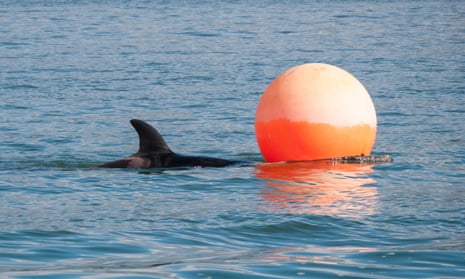The baby orca stranded in Tauranga harbour in New Zealand for more than 20 days has died.
The calf – nicknamed Bob by locals – had been separated from it’s pod in mid-July, and despite the efforts of a task force set up to reunite Bob with his family, his kin were never located.
The calf – estimated to be between six months and one year old – was dehydrated and emaciated, and refused food offered by scientists trying to save him.
Without his mother’s milk Bob had begun to use up his own reserves of blubber to survive.
Earlier this week Bob’s health began to decline rapidly, and he was transported from Tauranga harbour to a pool on the shoreline, where he was fed electrolytes and water through a tube. He was also offered fish slurry, which he refused.
“Sadly the calf lost its battle overnight despite the best efforts of a team of rescuers,” conservation minister Maggie Barry said in a statement.
“Rescue and release of an orca this young would have been a world first, the chances of success were always slim.
“I send my sympathies and commiserations to the many people who have worked exhaustively over the last week to try to save the young whale. It was an effort made in the best spirit of cooperation and conservation of the natural world.”
The task force set up to try to rescue Bob included staff from the Department of Conservation, Orca Research Trust and local Maori tribes. International orca expert Jeff Foster was also flown in from America last week to assist with the rescue.
“It is very unusual for a young calf to get separated from his family,” said Reon Tuanau, a spokesperson for Ngaiterangi tribe.
“As tangata whenua [native people of New Zealand] we have a close connection with all creatures of the sea and orca are held in high regard as a threatened species and taonga [treasure].
“We are feeling very sad.”

Comments (…)
Sign in or create your Guardian account to join the discussion